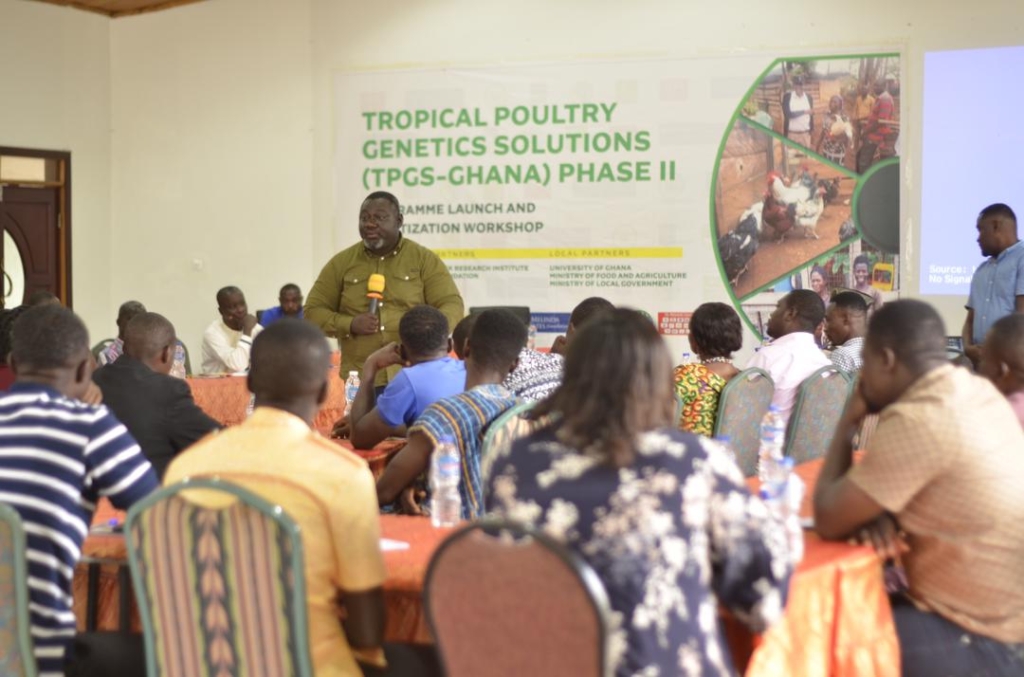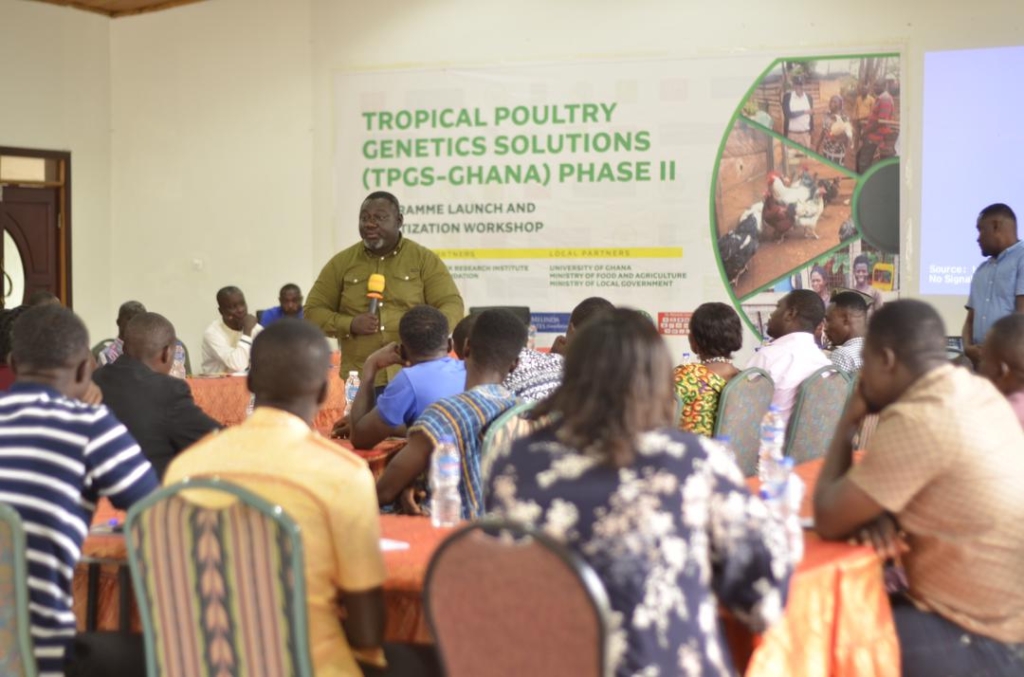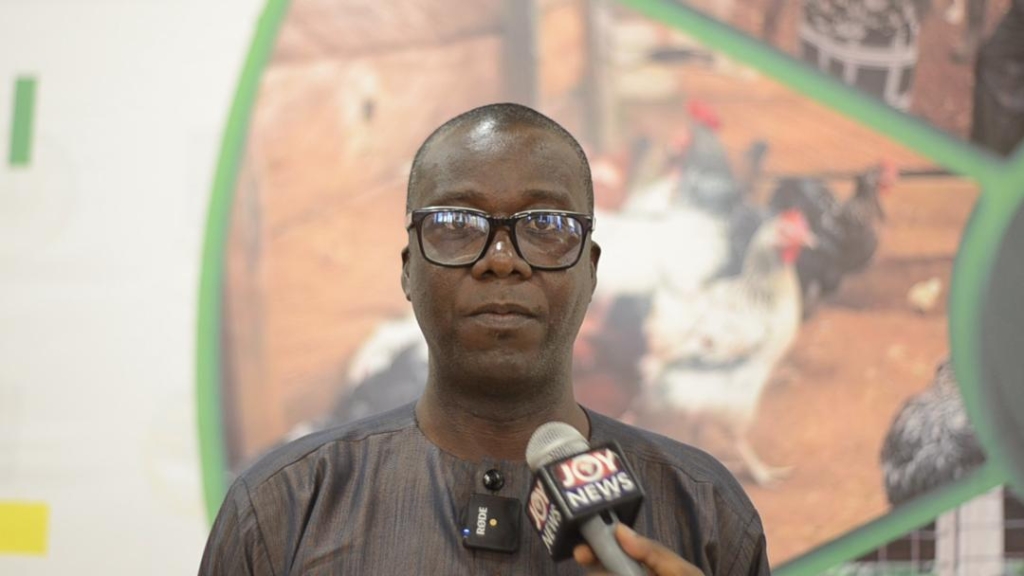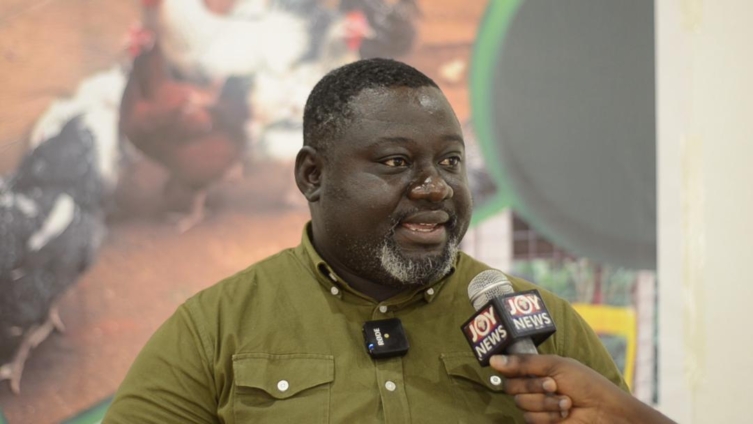The Department of Animal Science at the University of Ghana, has commenced a trial on the adaptability and growth performance of some five dual-purpose chicken breeds under farmer management systems.
The project, dubbed the "Tropical Poultry Genetics Solution" is a two-year genetics innovation strategy that seeks to test and identify high-producing farmer-preferred chicken genotypes.
The initiative aims at reducing poverty while strengthening food and nutrient security for rural households.
Despite Ghana’s poultry industry suffering varied setbacks in recent years, the demand for poultry products is on the ascendancy.

The country’s chicken consumption is estimated at approximately 460,000 metric tonnes annually as of 2022.
However, local production capacity, which is a little above 14%, is woefully inadequate to meet the demand.
Reports suggest about 80% of local poultry keepers depend on indigenous scavenging chickens, which are of low meat and egg producing potential.
Under the Tropical Poultry Genetics Solution project, the Department of Animal Science-UG is experimenting with new poultry breeds for higher production performance.

Deputy Project lead, Ricky Aboagye Poku says the performance of indigenous chickens is quite poor in terms of productivity.
“They’re usually of small body wings, fewer eggs even though they are adaptive to the environment so there was the need to research how best we can improve these local breeds as well as some of the commercial to get good performance. There was the need to have this field trial to see the adaptiveness of these breeds we are bringing on board,” he said.
The new breeds are a hybrid of exotic and indigenous poultry species reared for both meat and eggs.
These include Sasso, Noiler, Hubbard I, Hubbard II and Kuroiler.
“We are trying these ones because they have been tried elsewhere and have increased body weights and maturity has been much bigger than what we had. They are also laying more eggs so we thought this one would give our farmers more money. What we have now has adapted more to our low-input systems. Therefore, they don’t give us as much as we want and we want to move away from farming as a way of life to farming as a business or a model for poverty alleviation,” Dr. Raphael Ayizanga, a lecturer at the Animal Science-UG department said.

Ashanti Regional Livestock Officer, Agyeman Prempeh Ofori, is upbeat about the project’s benefits for the region.
“These intermediate animals are resilient to diseases, they can scavenge for feed. The little feed you add then brings the results you want. So, coming to the middle of the local chicken and the foreign chicken will of course help our local farmers and make a headway to production,” he said.
A beneficiary of the first phase, Comfort Acheamponmaa, a poultry farmer at Akyem Agyapomaa, explained that the project has improved her livelihood.
“It wasn’t easy initially. However, I was able to make a profit by investing in the business. I have more birds for sale in December,” she said.
The project is in partnership with the International Livestock Research Institute, the University of Ghana, the Ministry of Food and Agriculture and the private sector.
The trial is expected to be conducted across seven regions under three agro-ecological zones including the Transitional, Forest and Coastal Savannah zones.
Latest Stories
-
Alan promises to amend the Constitution to limit presidential powers
7 mins -
Ghana to face liquidity pressures in 2025, 2026 despite restructuring most of its debt – Fitch
9 mins -
NPP’s record of delivering on promises is unmatched – Bawumia
11 mins -
Mahama: It’s time to dismiss the incompetent NPP government
13 mins -
Today’s front pages: Monday, November 25, 2024
27 mins -
T-bill auction: Government misses target again; interest rates continue to rise
29 mins -
We have a bad technical team; Otto Addo and his team should go – Ernest Thompson
2 hours -
Hindsight: Why Accra Lions’ present problems do not define them
2 hours -
10-year-old Lisa Laryea arrives at Wits Donald Gordon Hospital in South Africa for bone marrow transplant
3 hours -
23 ambassadors inducted to take on 2025 GSTEP Challenge in three regions
3 hours -
Ghana Shea Workers Union inaugurated
3 hours -
Microsoft 365 under attack – how to bulletproof your business against cyber threats
3 hours -
I trust Bawumia; he has never lied to me – Akufo-Addo
3 hours -
Bawumia is hardworking; offers the youth platform to share ideas – Kow Essuman
3 hours -
IGP, Police commanders worship with churches in Ghana as part of security arrangements for 2024 elections
4 hours

